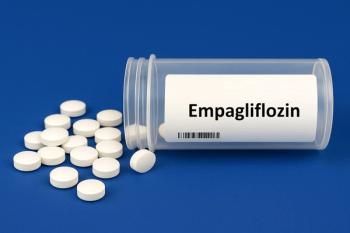
Guidelines Strongly Recommend Linzess for IBS-C
The American Gastroenterological Association has released updated guidelines for treating irritable bowel syndrome with constipation (IBS-C).
Recently-updated guidelines from the American Gastroenterological Association (AGA) strongly recommend Linzess (linaclotide) to treat irritable bowel syndrome with constipation (IBS-C), and conditionally recommend against using some anti-depressants such as Prozac.
The guidelines, published in Gastroenterology,1 outline, for the first time, when to use newly introduced IBS drugs, when to rely on older medications, and when to use over-the-counter drugs, AGA said in a statement.2
“We have so many treatment options, we can now take a targeted treatment approach to patient symptoms,” says author Shahnaz Sultan, M.D., AGAF. “It’s very important for patients to be open about their IBS symptoms and just as important for gastroenterologists to set realistic expectations for this chronic disease to ensure the best quality of life for their IBS patients.”
Linzess was the only treatment that the technical review committee recommended “with high certainty”. It made conditional recommendations or “moderate certainty” for tenapanor (Isbrela), plecanatide (Trulance), tegaserod (Zelnorm), and lubiprostone (Amitiza).
The panel had “low certainty” on polyethylene glycol laxatives such as Miralax, tricyclic antidepressants (Elavil, Norpramin, others), and antispasmodics (Bentyl, Lobrax).
AGA also made a conditional recommendation against the use of selective serotonin reuptake inhibitors (SSRIs) like Prozac, Celexa, and others.
“SSRIs did not significantly improve global symptoms or abdominal pain in IBS, although the overall certainty in evidence is low,” AGA wrote.
In some patients, SSRIs may improve the perception of overall IBS symptoms and well-being by improving gastrointestinal symptoms, coexistent alterations in mood and extraintestinal symptoms.
In addition, the panel said it is possible that SSRIs may have a greater effect on abdominal pain in IBS due to their effects on both serotonin and norepinephrine reuptake. “Serotonin-norepinephrine reuptake inhibitors have been shown to be efficacious in other pain conditions, but clinical trials in IBS are lacking,” AGA wrote.
Meanwhile, the panel gave linaclotide a “strong” recommendation because, across 4 randomized controlled trials, linaclotide improved global assessment of IBS-C symptoms (FDA responder), abdominal pain, Complete Spontaneous Bowel Movement response, and adequate global response.
References
- Chang L, Sultan S, Lembo A, Verne GN, Smalley W, Heidelbaugh JJ. AGA clinical practice guideline on the pharmacological management of irritable bowel syndrome with constipation. Gastroenterology. 2022 Jul;163(1):118-136. doi: 10.1053/j.gastro.2022.04.016.
- AGA issues clinical guidelines outlining drug treatment plans for patients with irritable bowel syndrome (IBS). News release. American Gastroenterological Association. June 21, 2022. Accessed August 8, 2022.
https://www.eurekalert.org/news-releases/956376
Newsletter
Pharmacy practice is always changing. Stay ahead of the curve with the Drug Topics newsletter and get the latest drug information, industry trends, and patient care tips.























